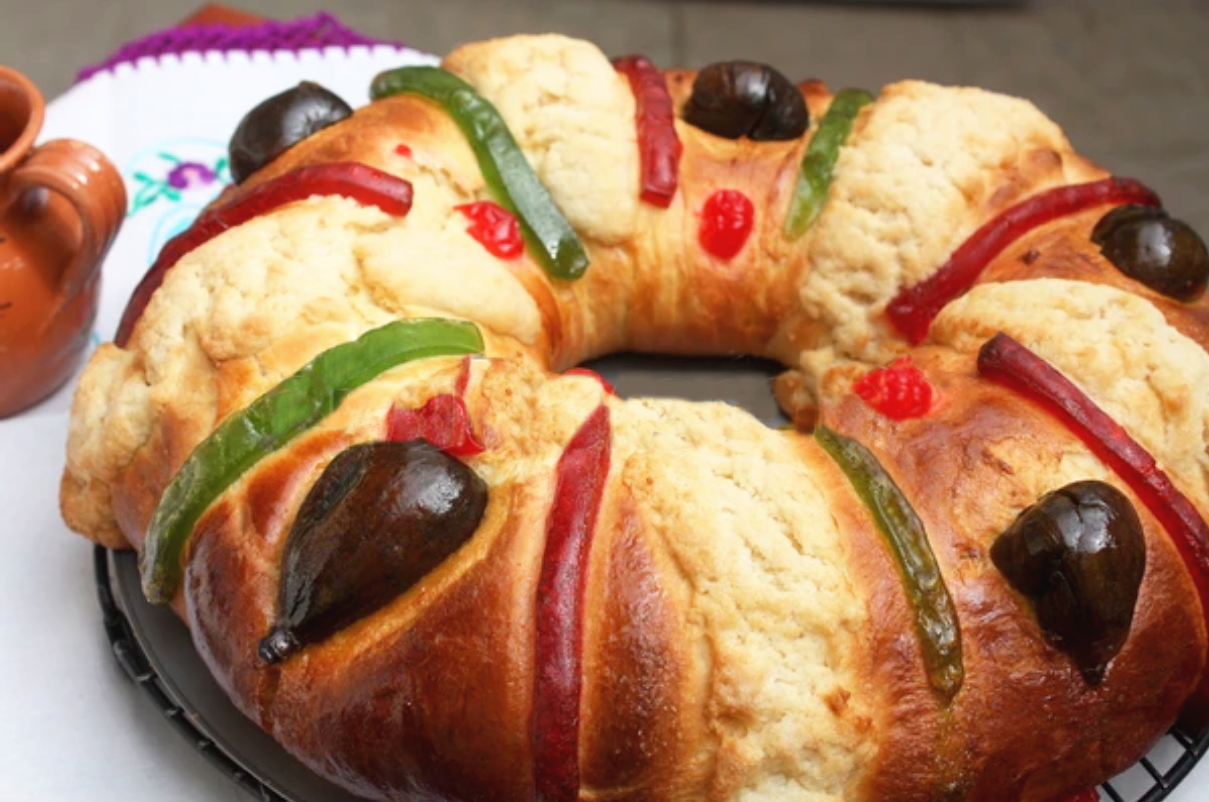I'm often fascinated by traditional foods eaten to mark certain holidays or Holy Days. Yesterday, January 6th we celebrated the Feast of Epiphany which celebrates the revelation of Jesus to the world. Centered on the stories of the Three Kings- the Magi searching and finding baby Jesus by following the Star of Bethlehem. The earliest known celebration dates back to A.D. 361 and the Roman Empire. They feasted for Epiphany to celebrate the baptism of Jesus.
This year I celebrated Epiphany or Día de Reyes, Three Kings Day, as it is referred to in Mexico with my friend Patricia's family who is from Guadalajara. The centerpiece of the celebration was a Rosca de Reyes- a traditional ring-shaped Mexican Candlemas bread bejeweled with candied fruit. The shape refers to the infinite nature of God's love, as well as the crowns worn by the Three Wise Men. Similar to King's Cake the Roscón has a baby figurine baked into it representing the baby Jesus when he was hidden from King Herod. As Mexican tradition goes, whoever finds the baby in their slice has to cook tamales for everyone on February 2nd- Candelaria Day- the last day of the Epiphany Season. I welcome the challenge but Patricia's sister ends up with the honor.
Rosca de Reyes originated in the fourth century with Saturnalia, a Roman festival celebrating the winter solstice. Romans would partake of a ring-shaped cake adorned with figs, dates and honey. This might be the earliest iteration of the Rosca de Reyes, which later spread to France in the 14th century. Eventually the bread travelled to Spain, and from Spain it was brought to Mexico during the conquest.
Patricia's mom served us slices of the cake with coffee and Mexican hot chocolate. I'm reminded that Patricia never eats anything sweet without coffee, even if late at night, always stating "I'm very Mexican in this regard." It reminds me of Italy where coffee is consumed as a post meal digestif. Roscón tastes similar to Conchas or Pan Dulce but the candied fruit is reminiscent of a holiday fruitcake.
Patricia's mom explains that in Mexico children write letters to and receive presents from the Magi instead of Santa Claus, so they often will wait to open their presents on January 6th. Having grown up with Lutheran traditions the celebration of Epiphany from my childhood was somewhat different. We would always celebrate the Baptism of Jesus on the first Sunday after the Epiphany, and on the Sunday before Ash Wednesday, we would read about the Transfiguration of Jesus. Epiphany was bookended by these two important occasions as they represent who Jesus is- the divine Son of God. Regardless of how you view or celebrate Epiphany, I must say breads and cakes certainly are a nice...and delicious touch!

Comments
Post a Comment